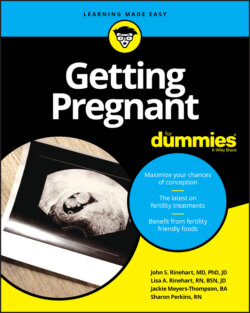Читать книгу Getting Pregnant For Dummies - Sharon Perkins - Страница 114
Reviewing nonprescription medications
ОглавлениеIt is amazing how often we grab an over-the-counter (OTC) medication to take care of a back sprain after playing pick-up basketball or a rash on the leg after hiking in the woods. Who checks with a doctor first? Well, things are different when you are trying to get pregnant and — as we warn you about vitamins and supplements in Chapter 9 — you need to pay a little bit more attention to what you are putting in or on your body. Your fertility clinic will no doubt give you a list of medications that are acceptable, but here a few general tips that you should think about before popping a pill or rubbing on salve:
Acetaminophen is generally considered safe to use as a painkiller for various aches and pains.
NSAIDS (non-steroidal anti-inflammatory drugs), including ibuprofen, may interfere with ovulation and can increase bleeding if taken prior to any procedures (like an egg retrieval). One study suggests that high doses impact sperm production. These should be used with clinic instruction only.
Aspirin can increase bleeding so use with direction only.
Milk of magnesia and antacids are usually fine to settle down that “icky” tummy.
Topical preparations for itches (like Cortaid) or minor skin infections (like Neosporin) can be used as long as you don’t overdo it and ignore what is causing the problem.
The best thing you can do is answer honestly when your doctor asks you “What medications do you take?”
